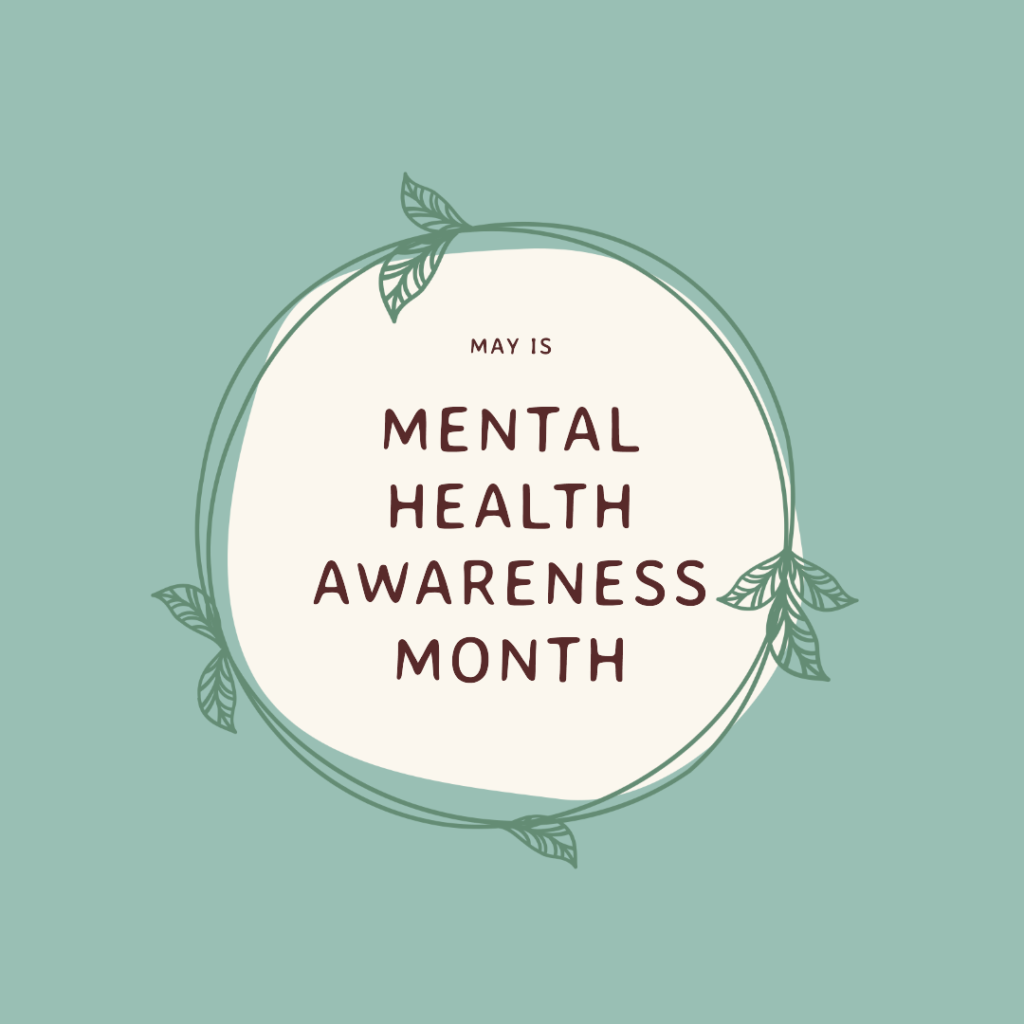The Importance of Mental Health Awareness: A Comprehensive Guide
Today, I want to have a heart-to-heart about something super important: mental health. It’s a topic that’s close to my heart because I am dealing with it. Now we find why mental health awareness matters for everyone, around the world and especially in India. In this blog post, we will explore why mental health awareness matters for everyone. Let’s learn why it’s not just a personal duty but something we all need to work on together.

Why Mental Health Matters
What is Mental Health?
Mental health encompasses our emotional, psychological, and social well-being. It’s not just about feeling happy all the time—it’s about how we handle life’s challenges, how we interact with others, and how we cope with stress.
Mental health is a crucial part of our overall well-being that we often forget to pay attention to. Understanding and caring for our mental health becomes very important as we go through our daily lives.

It’s really important to understand how big the problem is and to care about it. Even though people are becoming more aware of their physical health, mental health often gets left out. It’s time for us to start talking more about mental health and to care for people’s minds and emotions.
Sometimes, things in life can make it hard to keep good mental health. For example, if someone is dealing with poverty, violence, or inequality, it can affect their mental health.
The good news is, that many mental health problems can be treated without spending a lot of money. But around the world, there aren’t enough resources to help everyone who needs it.
Mental health problems come in different forms. Some are disorders, like anxiety and depression, while others can cause distress or make it hard to function in daily life.
The Importance of Mental Health
- Emotional Stability: Good mental health enables us to manage our emotions effectively, allowing us to navigate life’s ups and downs with resilience.
- Healthy Relationships: When we prioritize our mental well-being, we’re better equipped to foster meaningful connections with others and maintain healthy relationships.
- Productivity and Success: Mental health plays a significant role in our ability to focus, be productive, and achieve success in our personal and professional lives.

The Big Picture
Understanding the scope of mental health issues is crucial. In 2019, nearly a billion people worldwide were living with a mental health disorder, with anxiety and depression being the most common. These conditions can impact all aspects of life, from relationships with family and friends to how well someone performs in school or at work.
The Impact
Mental health isn’t just about our emotional state—it affects our physical health too. Studies have shown that untreated mental health issues can lead to a shorter lifespan and increase the risk of suicide. The economic impact of mental health problems is huge too. Lost productivity because of mental health issues costs more than the direct costs of care.
The Road to Awareness and Action
Global Initiatives
Thankfully, organizations like the World Health Organization (WHO) are leading the charge to improve mental health worldwide. Their plan for 2030 focuses on better leadership, community-based care, and prevention strategies. Plus, they’re working hard to ensure everyone has access to quality mental health care through initiatives like the Mental Health Gap Action Programme.

In 2019, nearly a billion people worldwide were living with a mental health disorder, with anxiety and depression being the most common. These conditions can affect all parts of life, from relationships with family and friends to how well someone does in school or at work.
To help tackle these problems, all countries agreed to follow a plan set out by the World Health Organization (WHO) to improve mental health by 2030. This plan focuses on better leadership, community-based care, prevention strategies, and improving how we understand and research mental health.
Mental health is a big worry all around the world, and. However, progress in helping people with mental health issues has been slow. Back in 1954, Dr. Brock Chisholm, the first leader of the World Health Organization (WHO), said that without mental health, we can’t really be healthy. Over 60 years later, not much has changed. About 14% of all health problems worldwide are because of mental health issues. But the real number might be even higher because we don’t always see how mental health affects other health problems.
In countries where there isn’t as much money, like India, it’s been hard to make things better for mental health. There are a few reasons for this: governments have other priorities for spending money, it’s tough to get mental health care in regular doctor’s offices, there aren’t enough people trained to help with mental health problems, and leaders in public health don’t always think about mental health.
So, it’s time to think about mental health awareness in a new way. By talking more about mental health, we can fight the stigma around it, help stop problems before they get worse, and find simple ways to help our communities. Nowadays, we have a chance to use new technology, like the internet and cell phones, to spread the word about mental health.

In India, the suicide rate is higher than in other nearby countries. But lots of people who need help with mental health don’t get it. One reason is that there just aren’t enough resources. India’s health care system isn’t as good as it could be, and lots of people end up spending a lot of money on health care and not getting better. One way to help is to train people who aren’t doctors to help with mental health problems.
To get more people in India to think about their mental health, we need to start talking about it more. When more people know about mental health, they’ll know when to get help, and how to prevent problems, and they will ask leaders for more support. We can do this by using things like YouTube, Social Media, and the internet to spread awareness. Also, the government can help by spending money on programs to help people with mental health issues, especially in places where there isn’t much help.
Schools can also play a big role in teaching kids about mental health. When kids learn about it early, they can help stop problems before they start. Big companies can help too by making sure their workers have good mental health.

With new ways of sharing information and getting people involved, we can change how people think about mental health. If we all work together – governments, schools, companies, and communities – we can make a big difference in the lives of people with mental health issues.
Mental Health in India
India is a diverse country with many different cultures. The way people think about mental health is changing slowly. Even though healthcare is improving, there aren’t enough mental health experts. There are only about 9,000 psychiatrists, and not enough new ones are becoming doctors each year. Ideally, there should be three or more psychiatrists for every 100,000 people, but India only has 0.75. To get to the ideal number, India needs 36,000 psychiatrists – a lot more than it has now. This is worrying because it affects people’s happiness and health. We need to talk more about mental health and care for each other.
Mental health is most important for our overall well-being. But sometimes, people don’t talk about it enough. There’s a saying that reminds us how connected our minds and bodies are. In many places, including India, mental health services aren’t good enough. This affects people in countries with less money, where things like getting help and affording it can be hard.

Mental Health Awareness
Mental health issues can happen at any age, from when we’re kids to when we’re old. They include things like feeling sad, anxious, or using drugs. Globally, mental illnesses make up 15% of health problems. India has a lot of people dealing with mental health issues, according to the World Health Organization (WHO).
Before COVID-19, about a billion people worldwide had mental health problems in 2019. This included 14% of teenagers, and during the first year of the pandemic, more people felt stressed, anxious, and depressed.
The statistics surrounding mental health in India are revealing:
- The World Health Organization (WHO) says India needs more mental health experts. Right now, there are only 0.3 psychiatrists for every 100,000 people. But there should be a lot more to help everyone who needs it.
- WHO thinks that 7.5% of Indians have mental health issues. And this number might go up to 20% soon! That’s a lot of people – 56 million have depression, and 38 million deal with anxiety.
- India has a big problem with suicides. It’s so bad that 36.6% of all suicides in the world happen in India. It’s the biggest cause of death for women and teenage girls aged 15-19. This needs attention now!
- According to WHO estimates, the burden of mental health problems in India is 2,443 disability-adjusted life years (DALYs) per 100,000 population. The age-adjusted suicide rate is 21.1 per 100,000 population.
- Mental health problems have become even more common since 1990. Now, one out of every seven Indians has them. That’s a big increase!
- Additionally, the economic loss due to mental health conditions between 2012 and 2030 is estimated at USD 1.03 trillion.
These facts show how important it is to pay attention to mental health in India and make sure everyone gets the help they need.
Strategies for Promoting Mental Health Awareness
Education and Training
- School Programs: Introducing mental health education in school curricula can help children develop resilience and coping skills from a young age.
- Workplace Training: Providing mental health awareness training for employees can create a supportive work environment and reduce stigma.
- Community Workshops: Hosting workshops and seminars in local communities can help raise awareness and provide resources for those in need.
Access to Care
- Improving Infrastructure: Investing in mental health facilities and resources can ensure that everyone has access to quality care.
- Telemedicine: Leveraging technology to provide remote mental health services can bridge the gap for those in remote areas.
- Affordability: Making mental health services affordable and accessible to all socioeconomic groups is essential for equitable care.
5 Tips for improving your mental wellbeing
By incorporating practices to prioritize mental health into our daily lives, we take proactive steps towards improving well-being and resilience. It’s not just a good thing to do—it’s necessary for a healthier, more compassionate society.

- Relax and Reduce Stress:
- Stress can take a toll on mental health, leading to anxiety, depression, and other issues. Finding ways to relax and reduce stress is essential.
- Techniques such as deep breathing exercises, meditation, yoga, and progressive muscle relaxation can help calm the mind and body.
- Engaging in activities that you enjoy, such as listening to music, reading a book, or taking a warm bath, can also promote relaxation and reduce stress levels.
- Setting boundaries and learning to say no to commitments that cause excessive stress is crucial for maintaining mental well-being.
- Seeking professional help through therapy or counselling can provide effective strategies for managing stress and improving overall mental health.

- Find Ways to Learn and Be Creative:
- Continuous learning and engaging in creative activities stimulate the brain and promote mental well-being.
- Learning new skills, hobbies, or languages not only keeps the mind active but also boosts self-esteem and provides a sense of accomplishment.
- Creative pursuits such as painting, writing, cooking, or playing a musical instrument allow for self-expression and serve as outlets for emotions.
- Participating in workshops, classes, or online courses related to areas of interest can provide opportunities for growth and personal development.
- Incorporating learning and creativity into daily routines fosters a sense of purpose and fulfilment, contributing to overall mental wellness.

- Spend Time in Nature:
- Spending time outdoors in nature has numerous benefits for mental health, including reducing stress, improving mood, and enhancing overall well-being.
- Activities such as hiking, gardening, or simply taking a walk in the park can help clear the mind, reduce rumination, and increase feelings of happiness and relaxation.
- Exposure to natural sunlight boosts vitamin D levels, which is essential for mood regulation and reducing symptoms of depression.
- Connecting with the natural world promotes mindfulness and a sense of awe, fostering a deeper appreciation for life and its beauty.
- Incorporating regular outdoor activities into one’s routine can have long-lasting positive effects on mental health and emotional stability.

- Connect with Others:
- Social connections play a vital role in mental health and well-being, providing support, companionship, and a sense of belonging.
- Building and maintaining strong relationships with family, friends, or community members fosters a support network that can help navigate life’s challenges.
- Engaging in social activities, such as joining clubs, volunteering, or attending social events, facilitates social interaction and combats feelings of loneliness and isolation.
- Open and honest communication with loved ones fosters trust, empathy, and understanding, strengthening interpersonal connections.
- Making an effort to reach out to others, whether through phone calls, video chats, or in-person interactions, nurtures relationships and contributes to overall mental wellness.
- Look After Your Physical Health:

- Physical and mental health are closely interconnected, and taking care of one’s physical well-being is essential for maintaining good mental health.
- Regular exercise releases endorphins, chemicals in the brain that act as natural mood lifters, reducing symptoms of anxiety and depression.
- Eating a balanced diet rich in fruits, vegetables, whole grains, and lean proteins provides essential nutrients that support brain function and promote overall well-being.
- Avoiding excessive alcohol consumption and substance abuse is crucial, as they can exacerbate mental health issues and lead to dependency.
- Prioritizing regular medical check-ups and seeking treatment for any physical ailments or conditions ensures holistic health and wellness.
- Establishing healthy habits such as getting an adequate amount of sleep, staying hydrated, and practising good hygiene contribute to overall physical and mental well-being.
Conclusion:
By collectively promoting mental health awareness, breaking down stigma, and ensuring support for all, we can make a brighter, more understanding future. Together, through education, support, and advocacy, we can create a world where mental health is prioritized and everyone feels supported on their journey.
Let’s continue the conversation, spread awareness, and work towards a future where mental health is recognized and embraced by all.
Hi, this is a comment.
To get started with moderating, editing, and deleting comments, please visit the Comments screen in the dashboard.
Commenter avatars come from Gravatar.